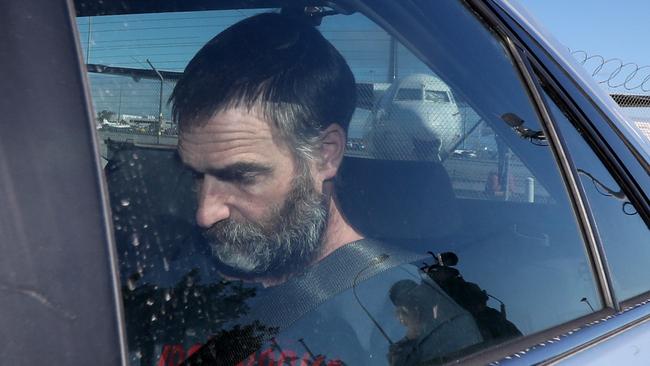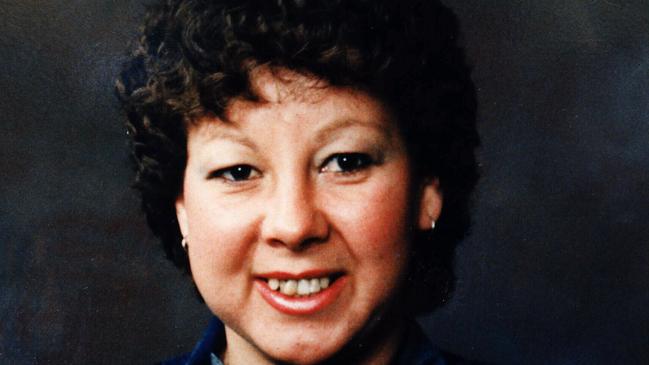Jury in cold-case murder trial of Matthew Tilley discharged on second day following legal error
The jury in the Suzanne Poll cold-case murder trial has been discharged on the second day of hearings following a legal error.
Police & Courts
Don't miss out on the headlines from Police & Courts. Followed categories will be added to My News.
The jury in a notorious cold case murder trial has been discharged on the second day of hearings following a legal error on the first day.
Matthew Donald Tilley, 48, is accused of the 1993 stabbing murder of Suzanne Poll in a northern-suburbs stationery store.
His trial began on Thursday with the prosecution opening the case and the first witnesses called to give evidence.
But on Friday, before the second day of evidence began, the jury was discharged by Justice David Peek.
“A legal error occurred during the prosecution opening on Thursday, November 4,” he said.
On Thursday, the jury heard Mr Tilley was matched to the scene of the murder by a DNA match on a disposable coffee cup tossed into a bin in Daylesford, Victoria, in 2019.
Mr Tilley was arrested two weeks later, in September 2019, and charged with murdering Mrs Poll on April 29, 1993.

Opening the trial in the Supreme Court on Thursday, Carmen Matteo, prosecuting, told the jury Mrs Poll was stabbed 18 times by a “strong-bladed” knife measuring at least 22cm at about closing time at her workplace, the Sands and McDougall stationery store on the edge of Parabanks Shopping Centre.
“She was killed by a man who entered close to closing time and attacked her in a ferocious manner with a knife,” she said.
“Her death had been caused by the infliction of multiple stab wounds, including some which had entered the back and passed all the way through her chest cavity to exit through the front of her chest.”
Mrs Poll’s husband went looking for her after she failed to return home and found her body in a pool of blood inside a rear office of the store. He called triple-0.
Ms Matteo said the timing of the incident “raises the possibility of this having been an intended robbery from the store”.

She said blood from the scene was later analysed for DNA, and after technology advances and repeated database searches, a familial match of DNA from an “unknown male” at the scene was matched to Mr Tilley’s brother, Daniel, in 2017.
“In addition to Mrs Poll’s blood, of which there was a lot, there appeared to be evidence of the blood of a second person – in particular the blood of a man,” she said.
“On the prosecution case, the person who was responsible for inflicting the stab wounds which killed Suzanne Poll injured himself in the course of carrying out the knife attack.”
She said crucial DNA of the “unknown male” was found on an item from Mrs Poll’s handbag, and areas in the shop including a lintel and door handle.
The breakthrough came after advances in DNA profiling techniques.

In 2019, police went to Victoria to meet with Mr Tilley. The jury was told a detective “observed after they spoke that Mr Tilley tossed a disposable coffee cup into a bin on a street where they were in”.
She said the detective then “pulled the coffee up out of the bin, put it inside an envelope and brought it back to SA with him”.
She said that sample was determined by experts to “be a match”.
“On the prosecution case, Mr Tilley’s DNA profile is a match to that detected in blood stains at the Sands and McDougall store,” she said.
Ms Matteo said the DNA found on the lintel, and on the floor in the store was “greater than 100 billion times more likely” to be Mr Tilley’s.
Jane Abbey, for Mr Tilley, told the jury to keep an open mind because there was a “controversy” with the evidence.
“It’s whether the identity of the killer had been proved, whether the evidence when you look at it in detail, proves the prosecution hypothesis,” she said.
A new jury will be empanelled on Monday.


